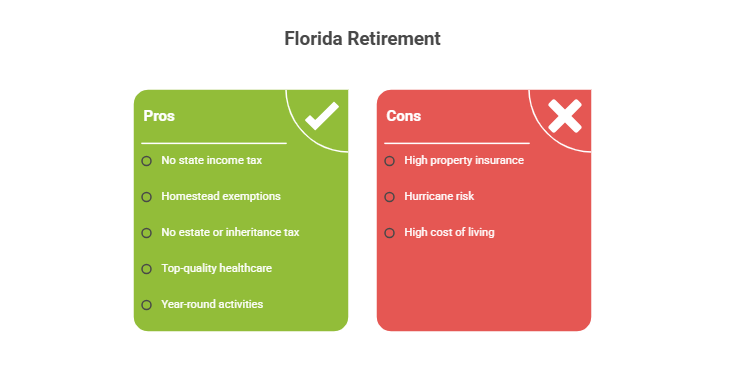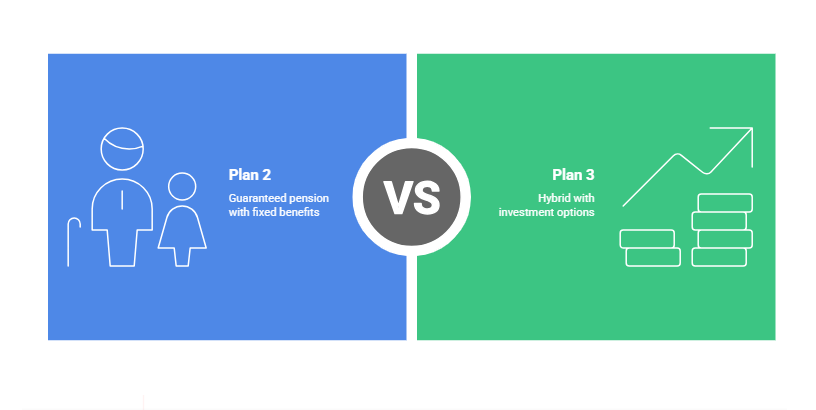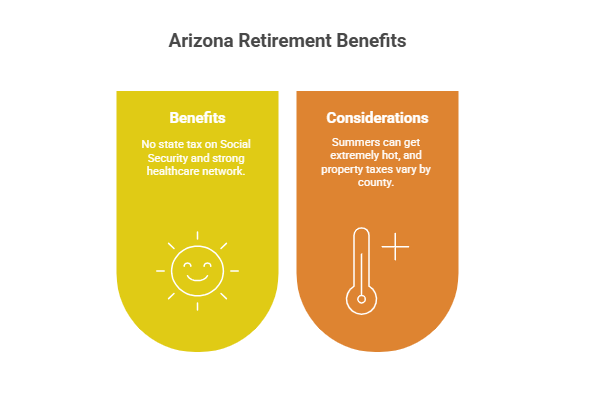
The Best State Retirement Plans That I Can Rely On
When I think about my future nest egg, I’m looking for the best state retirement plans because they can offer the right blend of tax advantages, robust pension options, and overall financial perks. I want a plan that stands strong now and years down the line. After all, retirement should be a time to enjoy life, not stress over taxes or limited benefits. If you’d like to explore ways to balance out your portfolio alongside any state plan, check out these retirement investment options for more flexibility.
Explore Florida’s Tax Perks

Florida consistently shows up on my radar thanks to its tax-friendly policies and lively environment for retirees. According to research by Edelman Financial Engines, Florida stands out for having no state income tax, homestead exemptions on your primary residence, and no estate or inheritance tax. That translates to significant potential savings. The kicker: Florida’s also home to top-quality healthcare providers and a vibrant mix of cultural and outdoor activities that let you stay active year-round.
- Why it’s great: No state income tax, strong healthcare, and endless sunshine
- Consideration: Property insurance costs can be higher in coastal areas
Consider Alaska’s Low Tax

If someone asks me about a truly minimal tax burden, I point straight to Alaska. This northern state boasts the lowest overall tax burden at 5.06%, per Empower. Alaska has no state income tax or sales tax, which can be a major financial advantage for high-net-worth retirees. Granted, living expenses are higher in some regions because of shipping and logistics, but the trade-off can still work in your favor if minimal taxation is a top priority.
- Why it’s great: Lowest state tax burden in the nation
- Consideration: Cost of living and harsh winters
Benefit From Washington Plans

Washington offers two main public retirement plans: Plan 2 and Plan 3, both administered by the Department of Retirement Systems. Plan 2 gives a guaranteed pension, while Plan 3 combines a defined benefit with optional investment contributions. Public employees have 90 days to make a choice, so it’s worth exploring each plan’s contribution rates, vesting periods, and potential returns. Washington also lacks a personal state income tax, meaning your future pension could carry even more weight in the long run.
- Why it’s great: Flexible choice between traditional and hybrid pension systems
- Consideration: Strict enrollment windows and potential complexity in managing investments
Want to combine a plan like this with personal savings? Take a glance at whether you can juggle multiple accounts by reading can you have a pension and 401k.
Count On Tennessee’s TCRS

I’m especially impressed by Tennessee’s Consolidated Retirement System (TCRS). Recognized as one of the top five strongest pension funds in the United States (Tennessee Department of Treasury), TCRS brings reliability for long-term retirees. Add in general tax-friendliness, including no state income tax on wages, and you’ve got a potent package. On top of that, Edelman Financial Engines notes that Tennessee offers affordable housing, cultural heritage, and solid healthcare options.
- Why it’s great: Strong pension system, low taxes, and vibrant culture
- Consideration: May not offer quite as many warm-weather perks as Florida or Arizona
Relax In Arizona’s Sunshine

There’s a reason Arizona frequently appears on “best places to retire” lists. The state doesn’t tax Social Security benefits, has a solid healthcare infrastructure, and features a cost of living that’s fairly manageable for many older adults. Per Edelman Financial Engines, retirees also love Arizona’s dry, sunny climate that’s easy on the joints and encourages outdoor activities.
- Why it’s great: No state tax on Social Security and strong healthcare network
- Consideration: Summers can get extremely hot, and property taxes vary by county
Leverage New Hampshire’s Wealth

New Hampshire might be smaller in size, but it packs big appeal for high-net-worth retirees. Empower highlights that the state ranks seventh for average retirement account balances and net worth. It doesn’t have a general sales tax or an earned income tax, letting you keep more in your pocket. True, property taxes can be steep, but many retirees see the trade-off as worth it for New Hampshire’s overall financial benefits.
- Why it’s great: High household net worth and no general sales tax
- Consideration: High property taxes could offset some savings
My Final Thoughts
For me, it’s clear that each of these states offers something unique, whether it’s Alaska’s ultra-low tax burden, Florida’s no-income-tax environment, or Tennessee’s strong TCRS pension. You might be wondering about the best state retirement plans, how their tax structures differ, how to combine them with personal savings, whether you can move states easily, or if there are early withdrawal implications. Whichever route you choose, just be sure to align it with your personal goals and lifestyle. If you’re looking to refine your approach further, don’t forget to check out other retirement investment options that can supplement these plans and grow your wealth even more. My advice? Weigh the pros and cons carefully, then pick a plan that sets you up for a comfortable, secure retirement. Happy planning!
Showcase your recognition by adding our award badge to your website! Simply copy the code below and embed it on your site to highlight your achievement.

Recent Posts
Retirement Planners in Los Angeles to Consider
Los Angeles, a city synonymous with opportunity and innovation, is...
Retirement Planners in New York to Consider
Navigating the financial landscape of New York can be overwhelming,...





